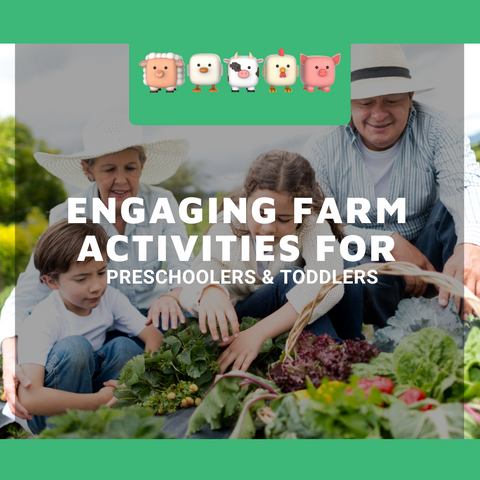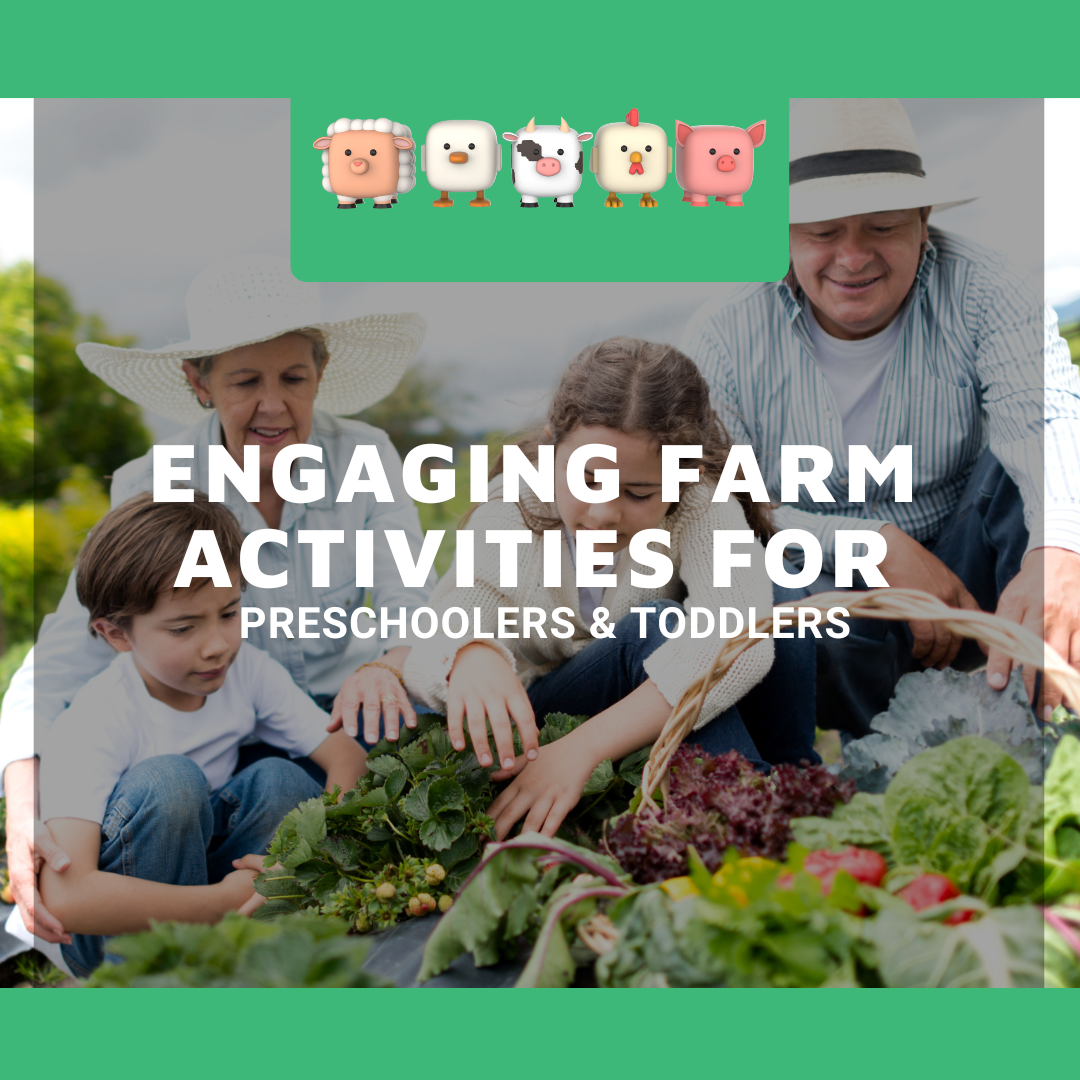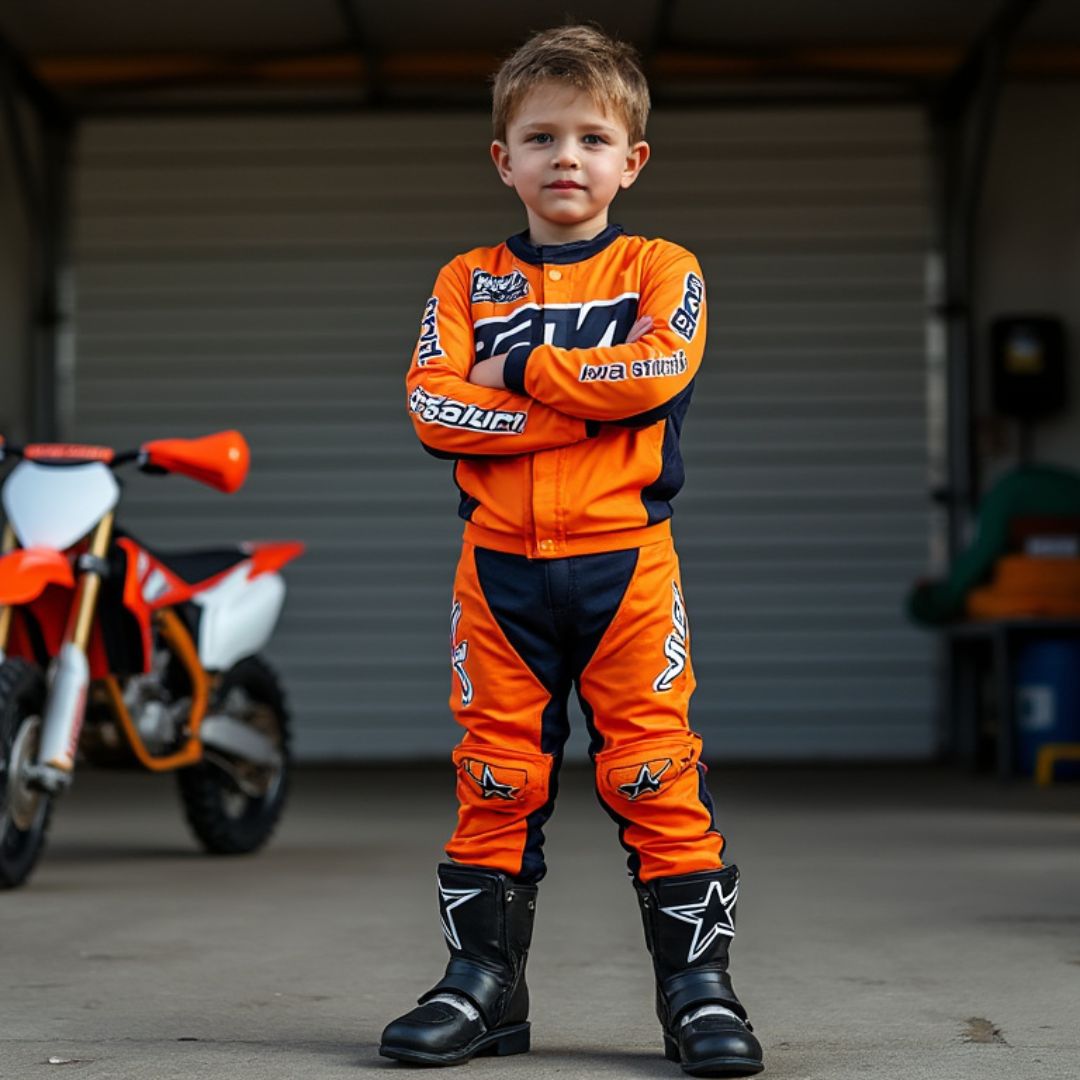Last updated: April 8, 2025
Looking for fun and educational ways to introduce your little ones to the world of farming? You're in the right place! Below, you'll find 15 engaging farm activities tailored for preschoolers and toddlers—perfect for sparking curiosity, creativity, and hands-on learning.
1. Farm Discovery Table & Sensory Play
Create a colourful and tactile setup with miniature barns, tractors, animals, crops, sand, water, and artificial grass. It’s a fantastic way to introduce children to the sights and textures of farm life while enhancing sensory development.

2. Pretend Play Farm
Set up a pretend play area where kids can role-play as farmers or animals. Include barns, toy crops, hay bales, and more to encourage storytelling, social interaction, and imaginative thinking.
3. Old MacDonald Music Basket
Use toy instruments that mimic animal sounds while singing “Old MacDonald Had a Farm.” This promotes auditory learning and musical exploration.
4. Make a Mystery Animal Book
Create a DIY book with riddles and clues about different farm animals. Great for early reading skills, vocabulary building, and critical thinking.
5. Gardening for Letters
Bury foam or magnetic letters in a sandbox “garden” and let kids dig them out. This combines sensory exploration with alphabet recognition.
6. Farm Toys for Kids
Introduce farming concepts through toys like tractors, barns, and animals. These stimulate curiosity, storytelling, and fine motor development.
7. Farm Arts & Crafts
Farm Animal Masks
Create masks using craft paper, string, and markers. Kids can become their favourite animal while developing motor skills and creativity.
Foam Cup Animals
Transform foam cups into pigs, cows, or chickens with paint and googly eyes—teaching recycling and artistic expression.
Stick Puppets
Craft simple animal puppets and encourage kids to put on a puppet show. This boosts imagination, fine motor skills, and public speaking confidence.
8. Farm Sensory Bin
Fill a bin with textures like cotton, gravel, straw, and water. Add toy animals and tractors for immersive, open-ended play.
9. Milk the Cow
Fill a rubber glove with water and poke small holes in the fingers. Kids can “milk the cow,” learning where milk comes from while practising coordination.
10. Gross Motor Farm Game
Design a game with physical farm-themed tasks—like carrying a hay bale (cushion), balancing like a rooster, or jumping like a goat. Great for movement and fun!
11. Field Trip to a Local Farm
A real farm visit offers hands-on learning, interaction with animals, and understanding of farming practices—nothing beats the real deal.
12. Toy Tractor Painting
Roll toy tractor wheels through non-toxic paint on paper to make artwork. A playful way to mix art and fine motor development.
13. Muddy Pen for Toy Animals
Create a muddy pen using brown play dough or safe mud. It’s messy, sensory-rich, and ideal for dramatic play with toy animals.
14. Themed Sensory Bins
Create multiple bins—each one themed around crops, animals, or farm tools. Swap them out weekly to keep things fresh and educational.
15. Garden-Themed Learning
Use real soil and seeds to teach kids about plant life cycles. Add in simple maths (counting seeds) or science (measuring growth). It’s hands-on STEM made fun.
In Summary
From arts and crafts to real farm visits, these 15 farm activities for toddlers and preschoolers offer a rich blend of sensory play, creativity, motor skill development, and real-world learning. Whether indoors or outdoors, these ideas make farming fun, meaningful, and memorable for young minds. Let's get growing!
FAQs
What age is appropriate for these farm activities?
Most of these activities are best suited for children aged 2–5 years, though older kids may also enjoy them with some added challenges.
Can I do these activities at home?
Absolutely! Most of the activities use items you likely already have or can find easily, making them great for home use.
Are these activities safe for toddlers?
Yes, as long as you supervise closely and ensure all materials used are non-toxic and age-appropriate.
How can I adapt these for a group setting?
You can scale up materials and divide children into small groups, rotating them through activity stations for better engagement and interaction.
What learning benefits do these activities offer?
They help with sensory development, fine and gross motor skills, early literacy, numeracy, creativity, and social-emotional growth.
Want to take the farm fun even further?
Explore Our Kids Ride-On Tractors





Share:
Take a Look At a Collection of Stormy's Rides: Roll Like Stormzy with RiiRoo's Kids Ride-On Cars
Discover the Thrill of the RiiRoo MaxDriftz™ Electric Go Kart